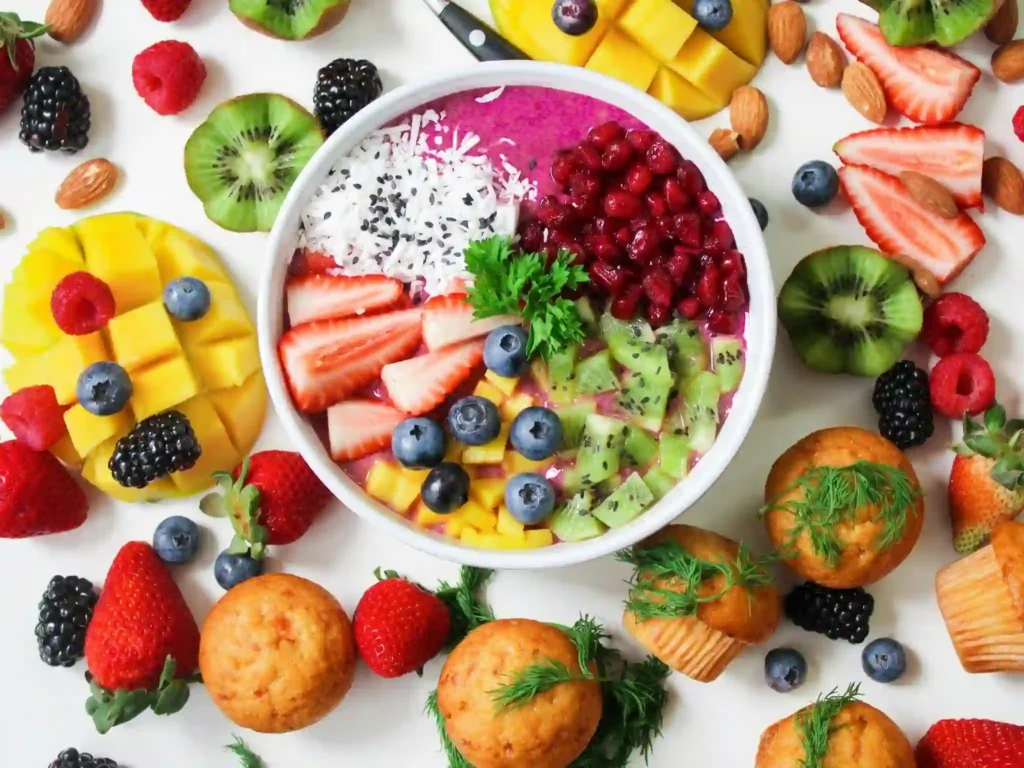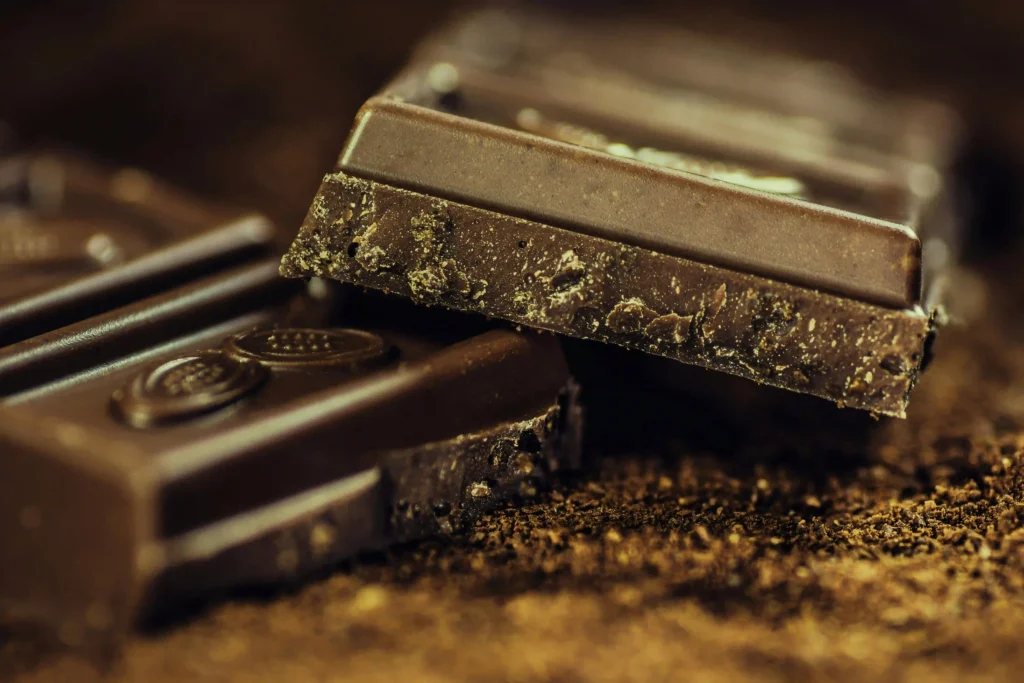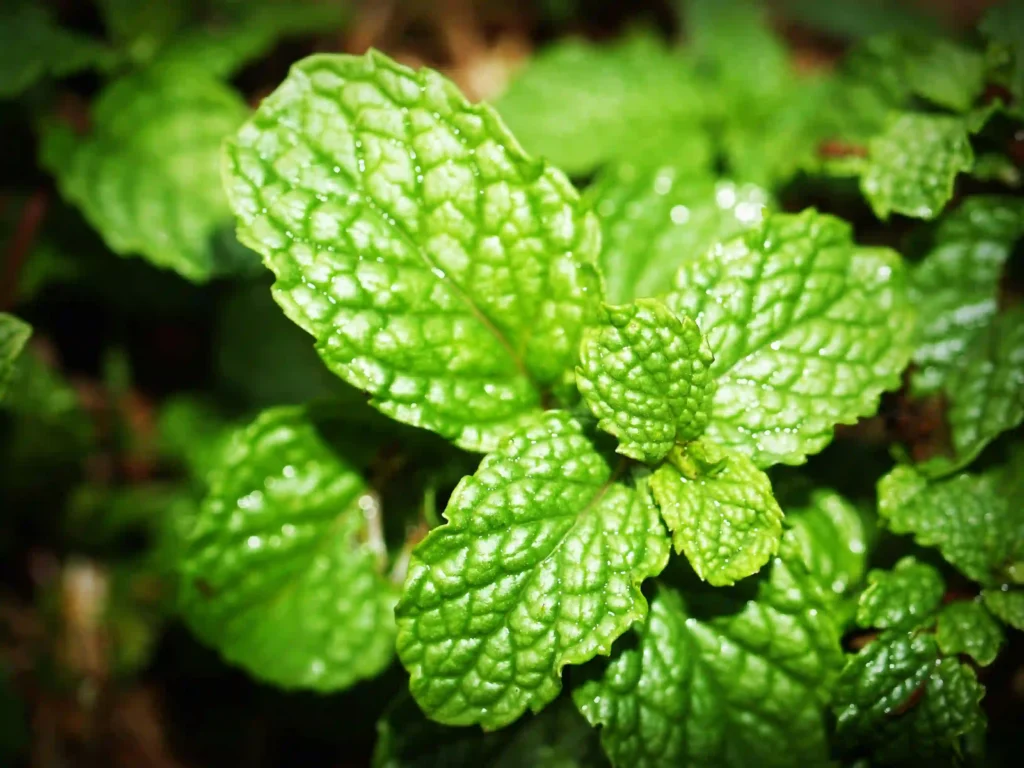Introduction

Gastro esophageal reflux disease also commonly known as acid reflux can make life uncomfortable in the following ways; First and foremost, patients need to know what effect specific foods have on them, and then avoid eating these foods. This blog looks into 10 Worst Foods for Acid Reflux to guide you into making the right dietary choices.
Table of Contents
Spicy Foods
Spicy foods also have an ability of increasing inflammation of the food pipe or the esophagus thus increasing the incidences of acid reflux such as heart burn, through loosing lower esophageal tone.
Spicy foods cause the stomach to slow its production of acids and juices and the chemical that makes foods hot – capsaicin – is believed to erode the lining of the LES or lower esophageal sphincter, which is the muscle at the junction of the stomach and esophagus that opens to let food in and closes to keep it out. This increases the chances for experiencing acid reflux. Some of the foods associated with effecting this change include chili peppers, hot sauces, and even curries. Spicy dishes also cause irritation of the stomach lining, so in addition to other unpleasant manifestations, their symptoms will become more severe. People with a sensitive stomach should avoid spices that cause or worsen acid reflux; however, basil, oregano, or ginger will work well. Possible to reduce or avoid consumption of hot meals especially dinner as this causes distress. Adding low spice version is to enhance the digestion process and need not to live with symptoms.
Citrus Fruits
Citrus fruits are highly acidic therefore they make the esophagus to be irritated hence worsening of such conditions such as heart burn, sour stomach and so on.
Citrus include oranges, lemons, grape fruit and limes which have high content of citric acid that enhance stomach content acidity. Considering this, stress increases the level of acidity, not to mention when the stomach acid comes back into the esophagus. Oranges and other citrus fruits can also relax the LES to allow acid to escape the stomach The second is the stress related disorders such as anxiety or nervousness. If caring for acid reflux patients, foods such as bananas, melons, or pears provide the same benefits as other fruits without straining the sufferers. Citrus fruits have high content of vitamin C, and thus they do more harm than good if they are consumed in their natural state, in large proportions or aggregated with other acidic foods. Consuming the juices also avoid on an empty stomach so as to minimize irritation and at the same time promote digestion.
Tomatoes
Tomatoes are acidic and therefore they cause increase in cases of acid reflux by developing irritation in the esophagus and an increase in the level of acidity in the stomach for people with sensitive stomachs.
Natural acids found on fresh tomatoes as well as processed tomatoes found in sauces, or soups or ketchup include citric acids, malic acids among others. These acids can aggravate conditions such as acid reflux because they boost the acidity of stomach digestive juice and brings inflammation to the esophagus. Further, processed tomato products may include fats and spices that may bring about the symptoms. In case of reflux, one may have to avoid tomato or its use in moderation, or make use of low-acid tomatoes. Replacing tomato-based dishes with creamy or herbed sauces as well as other rich tastes may give much needed variety that does not cause distress. It is recommended to combine tomatoes with other alkaline foods, like spinach or kale, which may overcome the negativity effect and have occasional use without worsening the symptomatology.
Chocolate

Chocolate also worsens acid reflux due to the presence of both caffeine and theobromine as well as fats which causes relaxation of the LES and stims production of stomach acid.
It is common knowledge that chocolate cannot be healthy for acid reflux and yet people cannot pinpoint how unhealthy it is for the condition. Chocolates – Theobromine they contain, reduces the pressure of the lower esophageal sphincter making it easier for acid to reflux from the stomach. Chocolate also has refixed oils which irritate the stomach walls, has caffeine – a stimulant of stomach acid production as is fat which relaxes the lower esophageal sphincter. The process also removes a great number of antioxidants, and milk and white chocolate are particularly infamous for their high sugar and fat content. For those who would not mind a cue from chocolates, one should go for products with little sugar and fat chocolates. Smaller serving size or not consuming chocolate with any acidic foods and beverages also goes a long way in management. The recommended course of action is to eliminate chocolate from the diet and, if possible, avoid it at bedtime; lying down makes heartburn worse.
Fried Foods
Any food that is fried contains a large amount of fat which takes time to be digested thereby putting pressure on the lower esophageal sphincter to allow more instances of heartburn etc.
Most fried foods contain fats which are also tough for digestion; foods like French fries, fried chicken, and onion rings trigger acid production. This long time causes acid reflux to individuals who are sensitive to this situation. Also, fried foods can cause the LES to become relaxed, although stomach acid into the esophagus. The severity of the symptoms may be worsened by fried foods taken in large quantities or taken during the night. To avoid acid reflux, avoid the consumption of fried foods, instead opt for grilled, baked or even steamed foods. Food that is cooked using little oil not only help in digestion but also have healthy benefits and do not add pressure to the digestive system.
Carbonated Drinks
Carbonated beverages lead to acid reflux because they put pressure on the stomach causing the acid to flow back into the esophagus and bring along burning sensations.
With carbonated products such as soda, sparkling water and energy drinks, bubbles formed inside the stomach to expand pressure within. This increases pressure on the LES, which thereby loses some of its strength and becomes easy for the stomach acid to go up. Most carbonated beverages should also come with caffeine, sugar or artificial sweeteners, all of which tend to disturb the sensitive lining of the esophagus thereby worsening the symptoms of reflux. One advice for people who suffer from acid reflux can take is to avoid taking carbonated drinks because they contribute to the incidence of the episodes. Avoid fizzy drinks, coffee, tea, alcohol and fruit juices but rather take still water, herbal teas and diluted fruits juices. Sip your drinks and avoid large amounts of liquid during meals also you can also avoid foods that worsens symptoms of this condition.
Coffee
Coffee is another irritant of the reflux esophagitis because caffeine weakens the LES and encourages the production of acid.
Many people may not know that, apart from stimulating the production of stomach acid, caffeine also weakens the LES, thus letting acid flow into the esophagus. For patients with acid reflux, it is advisable to avoid drinking coffee since coffee is naturally acidic and this includes coffee prepared with regular or decaffeinated coffee. Consuming coffee on an empty tummy is also bad since this makes the symptoms worse including heart burn and indigestion. Therefore, to lessening these effects try to cut down on your coffee taking, use low acidity coffee or replace coffee intake with teas like chamomile or ginger tea. Even for people on acid reflux, you can dilute your coffee with non-dairy milk such as almond or oat milk in a bid to lessen the amount of acid in the beverage.
Garlic
Garlic though is rich in vitamins and antioxidants is acidic and can exacerbate acid reflux in some people, particularly if it has been eaten in large quantities.
Despite the fact that garlic is good for human health, the strong flavorful compound can cause the production of stomach acid which will make acid reflux worse. Garlic when taken raw is more antiseptic and more likely to irritate the skin than the cooked garlic. While for some people even little portions cause heartburn or indigestion. If garlic causes acid reflux, you should consider avoiding its usage or perhaps replace it with mild species such as shallots, scallions or replace it with herbs like parsley and basil. The intensity of garlic as well as its capacity to brings about a burning sensation on the skin can however be reduced through cooking this plant ingredient to completion. Quantity and mode of preparation should also be varied at least to reach a level where these people can tolerate the bitter flavor without discomfort.
Onions
Onions are bad for acid reflux because they contain sulfur that can inflame the esophagus and causes the LES to calm, allowing acid to rise.
The raw onions are highly sensitive to the sulfur compounds and are famously bitter and sharp for the stomach lining. Onion seems to weaken the lower esophageal sphincter (LES) for anyone who suffers from acid reflux, it will be easier for acid to rise into the esophagus. Onions contain fructans, a type of carbohydrate that makes the gut most credit with likely instigating acid reflux symptoms. However, to eliminate these effects just ensure to use cooked onions because they are far much easier on the digestion system than raw onions. Or you may opt to use milder varieties such as leeks or shallots to bring flavor to your food without upsetting your reflux. Restriction of large amount of onions particularly in the night times appears to lessen the symptoms.
Peppermint

It was found that peppermint actually may be bad for heartburn sufferers as it can lengthen the LES timeframe, and cause stomach acid to rise back up to the esophagus.
Some of the advantages of peppermint include stomach soothing, and digestion improvement, conversely, its disadvantage includes treating acid reflux. Peppermint relaxes the muscles of the lower esophagi al ring – a natural reinforced sphincter that should prevent any reflux of stomach acid back into the esophagus. Sometimes if the LES is not working properly, the acid can flow back to the esophagus and make one to develop heartburn. Furthermore, it is stressed that this ingredient can cause a slowing down of the digestive processes, thereby causing a bloated und added pressure on the stomach. If one has acid reflux, it will be recommended that one avoid peppermint tea, candies and supplements. Avoid drinking peppermint, instead, you should go for ginger or chamomile since they’re less likely to cause reflux. Drinking other herbal teas may be useful in ascertaining another form of safe means of dealing with digestive issues.
Why Do Certain Foods Trigger Acid Reflux?
Some of the foods cause acid reflux because they relax the lower esophageal sphincter or stimulate the production of stomach acid or are provocative to the esophagus, that result in heartburn.
Heartburn-inducing foods either relax the LES, which is supposed to shut to prevent stomach acid from entering the esophagus, or produce more acid. Acid reflux foods include, spicy foods, citrus foods, tomatoes and any food that can aggravate the linings of the esophagus and digestion reducing foods such as high fat, fried foods which cause slow digestion thus resulting in increased production of both stomach and esophageal acids. Other foods and beverages such as chocolate or caffeine can also help to ‘relax’ the LES, and therefore allow stomach acid to reflux. Other causes include garlic and onion since they cause the production of more compounds to worsen the condition. Removing these causes from one’s diet may minimize the effects of reflux and thus promote good digestion and overall health. You can also learn Can I Eat Peaches with Acid Reflux?
Tips for Managing Acid Reflux Through Diet
In order to avoid acid reflux, diet modification includes avoiding certain foods, taking multiple small meals, and keeping upright after eating and also includes using foods like oats, ginger and lean proteins.
Curing acid reflux begins with changing your diet. Noncompliance with certain foods can greatly minimize the symptoms; foods like spicy foods, citrus and fried foods should be avoided. However, one should avoid large meals during any of these parts of the day to avoid overwhelm the stomach. Avoid going to bed for at least 2-3 hours after you are through with your meal as this would cause the acids to flow to the wrong side of the esophagus. Adding such foods as oatmeal, bananas and lean creature products will help ease the stomach making it lesser acidic. Also, using ginger in food or in tea can reduce all adverse conditions like indigestion, free radical production in the esophagus naturally. Staying hydrated by drinking water also play a big role to reducing the production of stomach acids. With these conscious modifications, those with acid reflux secure improved digestion and many symptoms are no longer experienced.
Common Symptoms of Acid Reflux After Eating
Acid reflux symptoms after consuming a meal usually involve experience heart burn, regurgitation, chest pain, bloating and swallowing problems that are as a result of acid backflow in the esophagus.
Depending on what a person has taken, they are likely to feel some form of acid reflux after eating since stomach acids do rise to the esophagus. Before making her final diagnosis, Heartburn is the first most common symptom which gives a burning sensation in the chest, mostly after you have eaten a very huge meal or any food that is rich in substances that are hard on your uptake system. Other symptoms include vomiting of food or sour substance, and an unpleasant taste that is bitter and sour in the mouth. Also, bloating and sensations of fullness may appear throughout the day if the person eat too much food or consume certain types of acid foods. Another common symptom is difficulty swallowing, or what doctors call dysphagia, which can occur when acid bothers the esophagus. These symptoms range and are pegged on certain foods such as fatty meals, spicy foods, citrus or chocolate. The symptoms can be eased by partaking smaller meals and eating them at distant intervals.
Foods to Include in an Acid Reflux-Friendly Diet
The best foods you should take are oatmeal, bananas, lean meats, vegetables and non-acid fruits because they can disarm stomach acid and calm your esophagus.
In this case, what one has to do is take foods that are not likely to aggravate the problem, and foods that can help counter the effects of over production of acid. Oatmeal is perfect here because this food helps to neutralize stomach acid and also has a generous dose of fiber. There are many fruits that can be taken despite the fact that they may contain acidic level such the apples, melons and pears may not cause severe case of acid reflux as caused by citrus fruits. Most vegetables are not acidic, those that are green leafy vegetables like spinach and kale are full of nutrients. The lean proteins include the chicken, turkey and fish and are rich sources of nutrients that do not cause the production of more stomach acid. Whole grain foods like brown rice and quinoa also have very positive effects on the digestion system. Furthermore, adding ginger or chamomile tea adds a health benefit because it aids in cooling and decreasing inflammation of the bowel. So including these foods reflected in the list below in your daily dieting plan will help you minimize the frequency of acid reflux symptoms or make them less severe.
Conclusion
Dietary control over acid reflux is important in order to alleviate or prevent symptoms of this condition in the best possible way. As simple as it is to avoid spicy dishes, citrus fruits or fried items, and rather include foods such oatmeal, lean proteins and non-citrus fruits, you are likely to reduce the discomforting symptoms. Along there are recommendations offered by dietitians that when one takes many small portions in a day and drinks a lot water, this help in digestion. Of course, these dietary modifications may do a lot and it is recommended that one should seek the opinion of a doctor if more treatment is required. Being aware of what one is taking is important, as it’ll assist in beating acid reflux and bestowing a better-quality life.